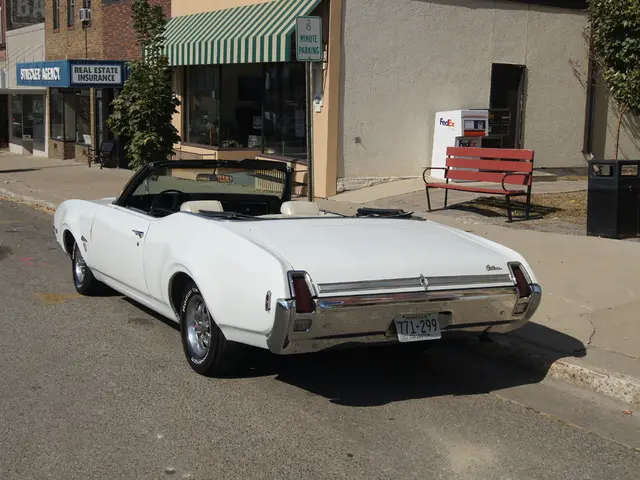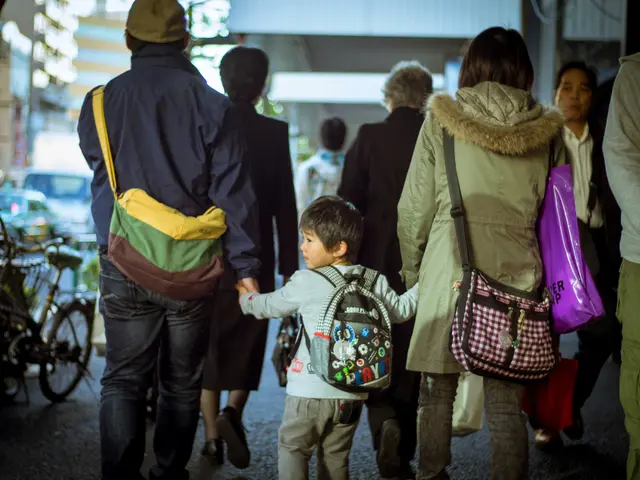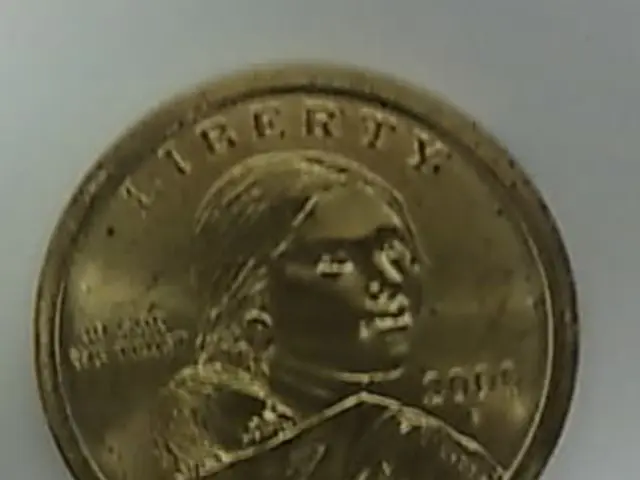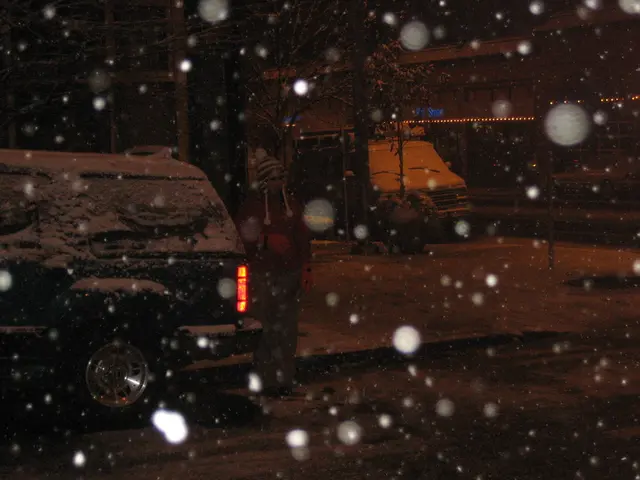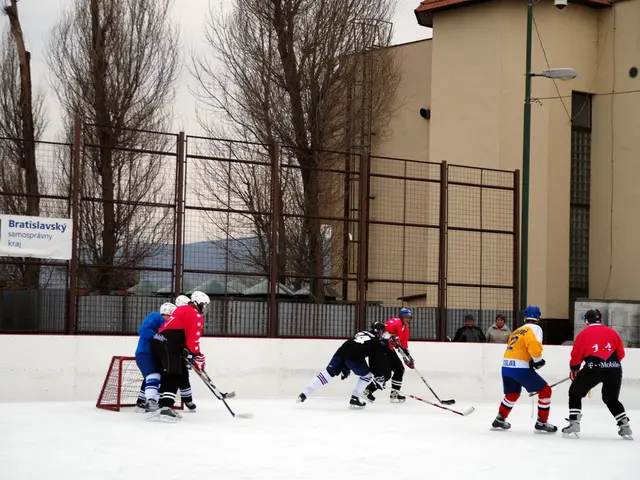Hardline Romanian candidate Simion clinches decisive victory in the initial round of presidential re-election
In the heart of Eastern Europe, Bucharest, Romania, saw a unprecedented shift in its political landscape as George Simion, the youthful leader of the far-right Alliance for the Unity of Romanians (AUR), clinched a resounding victory in the country's redo presidential election.
The polling season, delayed for months due to a vote annulment that plunged Romania, a member of both the European Union and NATO, into its biggest political storm in decades, has finally given way to a new face.
As 99% of the ballots were counted from the recent round, Simion secured a mammoth 40.5% of the total votes, far surpassing his competitors. Trailing in distant second place was Bucharest Mayor Nicusor Dan with 20.67%, while the governing coalition's joint candidate, Crin Antonescu, followed closely behind with 20.62%. Antonescu conceded defeat after midnight, recognizing the outcome as apparently unalterable.
Eleven candidates competed for the prestigious position in the polls, guaranteeing a runoff between the top two candidates on May 18th. By the time the polls closed, approximately 9.57 million people – 53.2% of eligible voters – had cast their ballots, with nearly a million votes from abroad filling the ballot boxes.
Election rerun after annulment
The election redo was a direct consequence of Romania's political terrain being shaken in the preceding year. Last autumn, a prominent court nullified the previous election in which Calin Georgescu, a far-right outsider, emerged as the frontrunner in the first round, following claims of election violations and Russian interference, which Moscow has denied.
Post-polling, Simion claimed that despite numerous obstacles, Romanians had bravely overcome them, hinting towards an exceptional victory. He vowed to restore constitutional order, champion democracy, and focus on his promise of reinstating the rightful dignity to the Romanian people.
Anti-establishment sentiment on the rise
Simion's triumph marks a significant realignment within Romania's political spectrum. Similar to many EU nations, anti-establishment sentiments have gained traction in the country, fueled by soaring inflation, budget deficits, a sluggish economy, and growing public disillusionment with the ruling elite.
Observers believe this discontent provided the perfect breeding ground for the rise of nationalist and far-right figures like Georgescu, who was barred from participating in the election re-run due to ongoing investigations. Georgescu made a public appearance alongside Simion at a polling station in Bucharest, deeming the redo a "fraud orchestrated by those who have made deceit the only state policy."
The presidential role carries a five-year term, significant decision-making powers in national security and foreign policy.
A vast mistrust in the authorities
While Dan, a mathematician and former anti-corruption activist, ran on a pro-EU "Honest Romania" ticket, Antonescu, a seasoned centrist who campaigned on preserving Romania's pro-Western orientation, called for a united, strong, and dignified Romania.
Victor Ponta, a former prime minister who promotes a "Romania First" agenda and boasts of having close ties to President Trump's administration, stood in fourth place. Elena Lasconi, who came in second in last year's first-round ballot, managed to gather just 2.6% of the votes this time around.
A Bucharest-based political consultant noted that Simion's clear victory indicated a total reshaping of the political landscape. If Dan reaches the runoff, it would suggest that the political class and the political establishment have lost ground significantly.
"This is a moment of uncertainty for Romania," said the consultant. "The new president will have to navigate both the drive for sovereignty and the need to maintain Romania's strategic partnerships with its western allies."
As Romania stands at a crossroads, it must work to regain the trust of its citizens while preserving its critical alliances. Critics and supporters alike anticipate that Simion's victory will usher in a new era for the nation.
This article is based on Associated Press reporting.
Deep Dive:
- George Simion's Profile: George Simion, the leader of the Alliance for the Union of Romanians (AUR), was born in 1984 in Tulcea, Romania[2]. He co-founded AUR in 2019 and soon emerged as a powerful force in Romanian politics, being elected to the Chamber of Deputies in 2020[2]. Simion's party has been criticized for its nationalist and Eurosceptic views, which sometimes create tensions with Romania's EU partners[3]. In addition to his domestic activities, Simion serves as the Vice-President of the European Conservatives and Reformists Party, which reflects his broader European political engagement[2].
- Ideology and Policies: The AUR party under Simion's leadership promotes a strong nationalist agenda and Euroscepticism, with an emphasis on preserving Romanian identity and independence[3]. Simion has been skeptical of Romania's military support for Ukraine and opposes arms deliveries to Kyiv[3]. He has also taken stances that seem critical of NATO, complicating Romania's role within the alliance[1]. In addition, Simion has expressed support for traditionally conservative family values and is perceived as an ally of Vladimir Putin, though he has explicitly denied claims of Russian ties[1].
- Controversies: Simion's political career has been marred by various controversies. During the election campaign, he was accused of making homophobic and xenophobic remarks[4]. In the past, his party has been accused of collaborating with far-right and ultra-nationalist groups[3]. Furthermore, Simion has faced allegations of corruption, although these have not been substantiated in a court of law[1]. His rise to power and the support he has garnered have raised concern among Romania's allies, particularly those in the European Union.
- Following his victory, George Simion, the Romanian president-elect, declared that despite numerous obstacles, the people of Romania bravely overcame them.
- In a general news article focusing on the Romanian elections, it was reported that the redo presidential election happened due to claims of election violations and Russian interference.
- The economic landscape in Romania has been sluggish, contributing to an increase in anti-establishment sentiments within the political sphere.
- Trailing George Simion in the presidential elections was Bucharest Mayor Nicusor Dan, who, despite being a pro-EU candidate, could not win over an unusually disillusioned electorate.
- The presidential role not only carries a five-year term but also significant decision-making powers in national security and foreign policy.
- The Alliance for the Unity of Romanians (AUR), led by George Simion, champions democracy and focuses on restoring the rightful dignity of the Romanian people.
- Critics remain uncertain about how George Simion’s victory in the elections will impact Romania's relationships with its western allies, particularly on matters concerning war-and-conflicts, crime-and-justice, and politics, including elections and laws.

